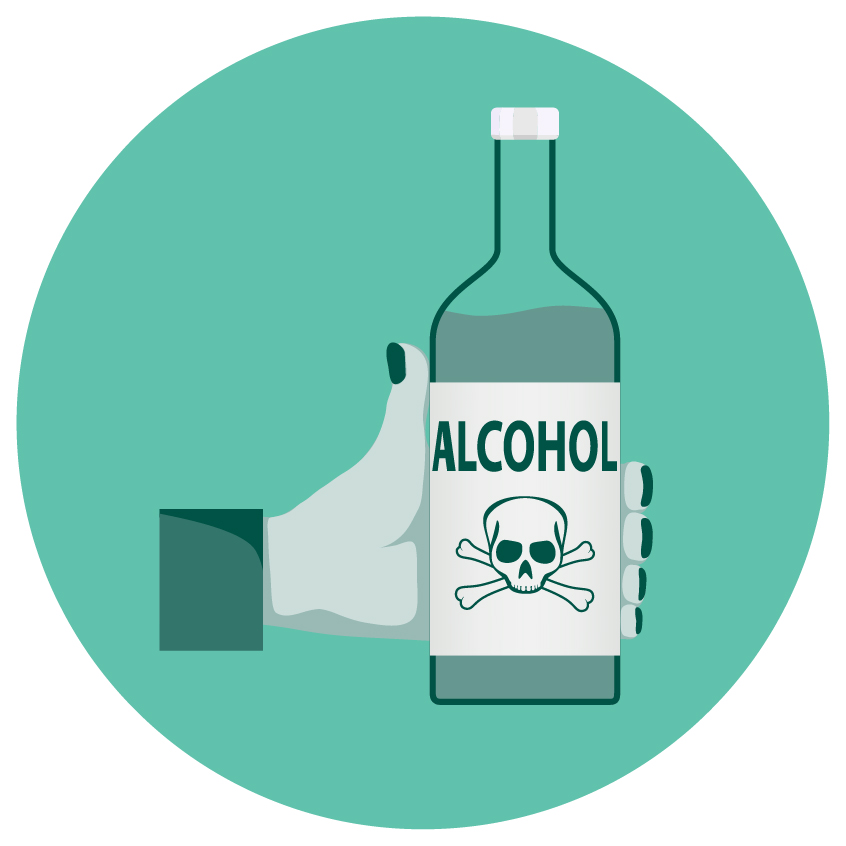Alcohol poisoning has emerged as a major problem, posing a threat to almost everyone who consumes alcohol. For binge drinkers, the danger factor is much greater. The alcohol Poisoning mechanism is linked to a specific process in which the liver is forced to filter alcohol from circulation. Though alcohol is ingested quicker by our systems than food and therefore enters our circulation faster, our bodies can only handle approximately a unit of alcohol each hour. In the same vein, one’s age, gender, and overall health all play a role.
After an hour, if you consume three units of alcohol, you will have two units in your bloodstream. When someone drinks too quickly, their BAC (Body Alcohol Concentration) rises. And if you drink too quickly, your blood alcohol concentration (BAC) may rise to hazardous levels. As a result, consuming a large quantity of alcohol in a short period of time puts a person at a considerably greater risk of alcohol poisoning. Physical functions are impaired by a greater BAC, and one may faint.
Excessive alcohol intake has some of the most direct and obvious effects on the individual’s body. One’s feeling of balance may be lost when brain processes slow down. Discomfort in the stomach may cause vomiting, and since reflexes have weakened, it’s possible to get the vomit in the nose. This may have serious consequences, such as breathing and pulse slowing or stopping entirely.
Hypothermia may result from a drop in body temperature, and seizures can result from a drop in blood sugar levels; both of these consequences can be life-threatening. Alcohol poisoning may cause a coma, dehydration can cause irreversible brain damage, and it is a condition that requires urgent medical care. Even after stopping drinking, BAC may continue to rise for 30-40 minutes, potentially exacerbating the symptoms.
Before the issue gets any worse, it’s always a good idea to quit drinking. Poisoning by alcohol requires immediate action. If you suspect someone in your immediate vicinity is suffering from alcohol poisoning, you should take appropriate measures. This is a potentially hazardous circumstance, and if you have your reservations about somebody being in such a predicament, it is best to be cautious and seek medical help or contact an ambulance right away.
Hypothermia, or a decrease in body temperature, is one of the frequent signs of alcohol poisoning that should be looked out for as soon as expert medical help is sought.
These symptoms may also include feeling lightheaded or being in a state of stupor, in which the person is awake but non-responsive. People suffering from alcohol poisoning may find themselves breathing slowly, having an odd respiratory pattern, or even vomiting. In such a scenario, one is more likely to have a heart attack.
While medical aid is being delivered, attempt to keep the person alert and in a sitting position rather than laying down. If the person suffering from alcohol poisoning can drink water, he should do so since it will help him stay hydrated. Coffee should not be given to the patient since it would exacerbate dehydration.
Similarly, the patient should not be forced to walk and should not be forced to lay on his back.
Getting rid of your addiction may do us damage in a variety of ways. People make resolutions to overcome addictions, yet they might see themselves reverting to old behaviors at times. In your quest to overcome addiction, don’t let anything stand in your way. No Addiction is the most effective method to overcome any addiction and live a better, more fulfilling, and happier life.

